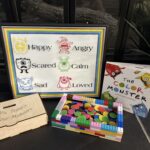For this weeks reflection, I watched Jesse Miller’s TEDx West Vancouver ED talk on youth and the importance of understanding digital citizenship. Devices are readily available to today’s youth and all too often are used as a way to ‘pacify’ our children while we take care of another task. This statement hit me as a parent who has always tried to limit the amount of mindless technology use of my children. My children have to generally complete a task around the house, do something for another person (which my kids have gotten smart and will do a chore for each other so they both win!), complete all homework before they can have screen time and then there are the general rules of no cell phones after 9:00 PM and leave your phone in the kitchen or living room when you go to bed. With all this said, there are times that the iPad or cell phone have come in handy as way to give me a break. I’m guilty of it just like any other parent. I’ve needed 30 minutes to myself, I’ve been driving and need no distractions, I’ve wanted to talk to an adult without dealing with a meltdown. All the good that technology has brought to our fingertips, but how often are we not using it to its full potential and more as just a means to pacify our children.
One of the first statements that Jesse spoke of was youth looking at their phones before their feet touch the ground. My daughter had a sleepover last night with a friend who is a year older. They had set up a couple beds in the living room and created forts around them. It made my heart happy to see that they are still little girls. This morning as a was making breakfast I noticed that one woke up and then the other. They didn’t speak, they didn’t really acknowledge anything around them, but rather reached for their devices and started scrolling. This hit me hard, here they are, young girls, the best of friends, zoned out on their devices and needing the device before anything else in the world. Technology and social media has become a drug to our youth.
“[We] haven’t prepared our students for the biggest online threat they may face: their own actions”
Jesse Miller
Internet safety is so important and I think that as kids get younger and younger with the use of technology, we as educators and part of society, need to do a better job at protecting our youth from not only online predators, but also from their own actions. The line where Jesse states “[We] haven’t prepared our students for the biggest online threat they may face: their own actions” is so true. Sometimes the focus for online safety is so focused on the content and access to the outside world that we forget to teach kids how to be responsible digital citizens. We are failing our youth by not teaching them the importance of responsible actions online. Youth of today are very much there for the ‘likes’ and as they are in the “can’t/won’t happen to me” phase of their life, they don’t think of the consequences of their actions. That once something is online, it is always there. Youth aren’t thinking about their digital footprint and how it can change their future and future opportunities. But how can we as educators, help students understand the consequences of their actions? I think is is important to teach them young; normalize the importance of thinking about our actions when online. To seek permission from adults or others before posting pictures of someone that is not you, something makes them scared or they are unsure of something. To regularly discuss the importance of their digital footprint and how it can affect them for life. This won’t stop all kids from posting inappropriate things, but it will make a difference for the majority of students. As educators and parents, we need to keep communication doors open when it comes to technology and safety. Here are a couple great videos I found when searching more on digital citizenship for students. We the digital Citizens and Pause & Think Online are great for younger students to start the conversation of digital citizenship and the importance of pausing and thinking about your actions when online. It is important for students to listen to their gut and that icky feeling they may get when something isn’t right.





